Search
Search Results
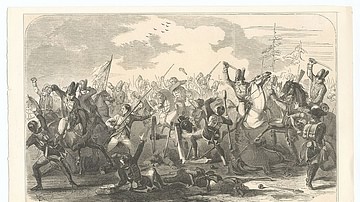
Article
Battle of Waxhaws
The Battle of Waxhaws (29 May 1780) was a small engagement during the southern theater of the American Revolutionary War (1775-1783) that nevertheless had a significant psychological impact on the Patriots. During the battle, Lt. Colonel...
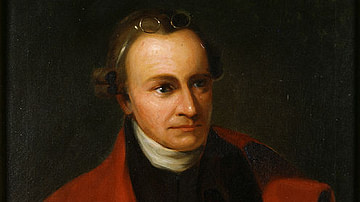
Definition
Patrick Henry
Patrick Henry (1736-1799) was a Virginian lawyer and politician who played a vital role in the American Revolution (c. 1765-1789). Known for his brilliant oration, including the famous Give Me Liberty or Give Me Death speech, Henry served...
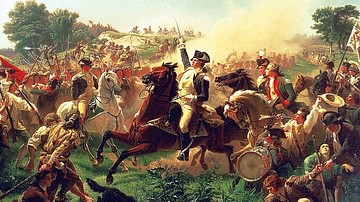
Article
Battle of Monmouth
The Battle of Monmouth (28 June 1778), or the Battle of Monmouth Court House, was the last battle of the Philadelphia Campaign during the American Revolutionary War (1775-1783). After abandoning control of Philadelphia, the British army under...
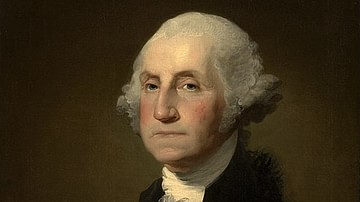
Collection
Founding Fathers of the United States
The Founding Fathers of the United States were the leaders of the American Revolution (c. 1765-1789), who led the push for American independence from Great Britain, founded the United States, and oversaw the implementation of the US Constitution...
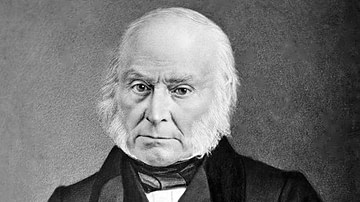
Definition
John Quincy Adams
John Quincy Adams (1767-1848) was an American statesman and diplomat who served as the sixth president of the United States (1825-1829). The son of a former president, Adams had a long and distinguished political career both before and after...
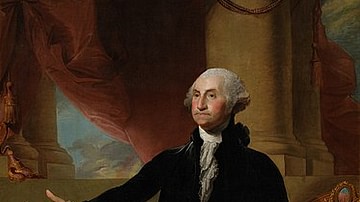
Definition
US Presidential Election of 1789
The US presidential election of 1789 was the first presidential election to take place after the ratification of the United States Constitution. Held on 4 February 1789, it resulted in the unanimous election of George Washington (l. 1732-1799...
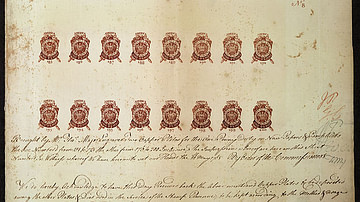
Definition
Stamp Act
The Stamp Act of 1765 was the first direct tax imposed on the 13 American colonies by the Parliament of Great Britain. It required the colonists to pay a tax on all printed materials including newspapers, legal documents, magazines, and playing...

Definition
John Marshall
John Marshall (1755-1835) was an American lawyer and statesman, who served as the fourth chief justice of the United States Supreme Court from 1801 until his death in 1835. Considered one of the most influential chief justices in US history...
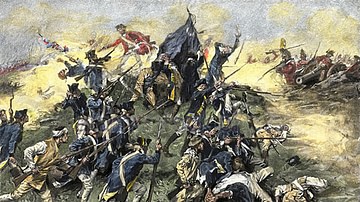
Article
Siege of Savannah
The Siege of Savannah (16 September to 20 October 1779) was a significant engagement in the American Revolutionary War (1775-1783). Hoping to retake Savannah, Georgia, which had fallen to the British the previous year, a Franco-American force...
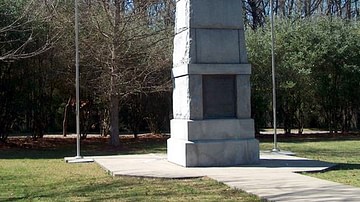
Article
Trail of Tears: Memorial and Protest of the Cherokee Nation by John Ross
The Trail of Tears was the forced relocation of the "Five Civilized Tribes" – Cherokee, Chickasaw, Choctaw, Muscogee Creek, and Seminole – from their ancestral lands in the Southeastern region of the United States to "Indian Territory" (modern-day...